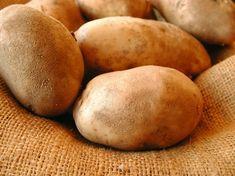
The UK’s potato crop could be in store in record time next year, farm business consultants Andersons has predicted in its outlook for 2012.
At the end of July, potato yields for the 2011 crop looked likely to be down after another dry summer. But Andersons has said recent conditions mean British spuds could be on the shelves earlier than ever.
“Later rains and excellent lifting conditions to date mean that the UK crop could be in store in record time, with yields generally in line with recent averages,” Andersons’ director Jay Wootton said.
But he said this will do nothing to help the prospect of a further year of depressed prices.
Wootton added that after a dry summer there are fears water will be in short supply next year.
“The dry autumn of 2011, with significant soil moisture defects, leaves many worried about next spring, and particularly replenishing reservoirs emptied to keep crops growing through the hot September 2011 weather,” he said.
“A new and ever more determined price war will continue to pressurise growers and packers, and it is likely that there will soon be a further drive for market consolidation, with finance beginning to play a part in this risk-prone and, in some instances, relatively high-geared industry.”
He outlined the brassica sector as a cause for real concern.
“Growers should carefully examine risk and return, including customer base and financial stability of the enterprise, before committing to longer term projects,” he said.
Andersons partner John Pelham said inflation would be a key issue in his forecast for the fruit sector in 2012. He used the example of the strawberry sector, in which seasonal wages have doubled in the last 10 years whilst strawberry prices have remained static, as an example of the problems the sector could face.
He said: ““Many have responded by expanding their turnover, often assisted by Producer Organisation funding. Whilst expansion is an important part of business development, the key to managing inflation is to improve productivity.
"Curiously, productivity often declines with expansion, as new crops (often requiring new staff) do not perform as well, and management is stretched. Finding the right balance between expansion and improved productivity will be the key issue for many soft fruit growers in an increasingly challenging business environment.”
Andersons outlook for farming in 2012 as a whole asked whether farmers should feel “smug” to be in an industry that “is immune to the downturn” or cautious because the “chill winds of austerity will soon be whistling around farming as well”.
Richard King, one of the contributors to the Outlook for 2012, said: “Agriculture does, to a certain extent, follow a different path to the rest of the economy, but it will not be immune to the downturn.”



